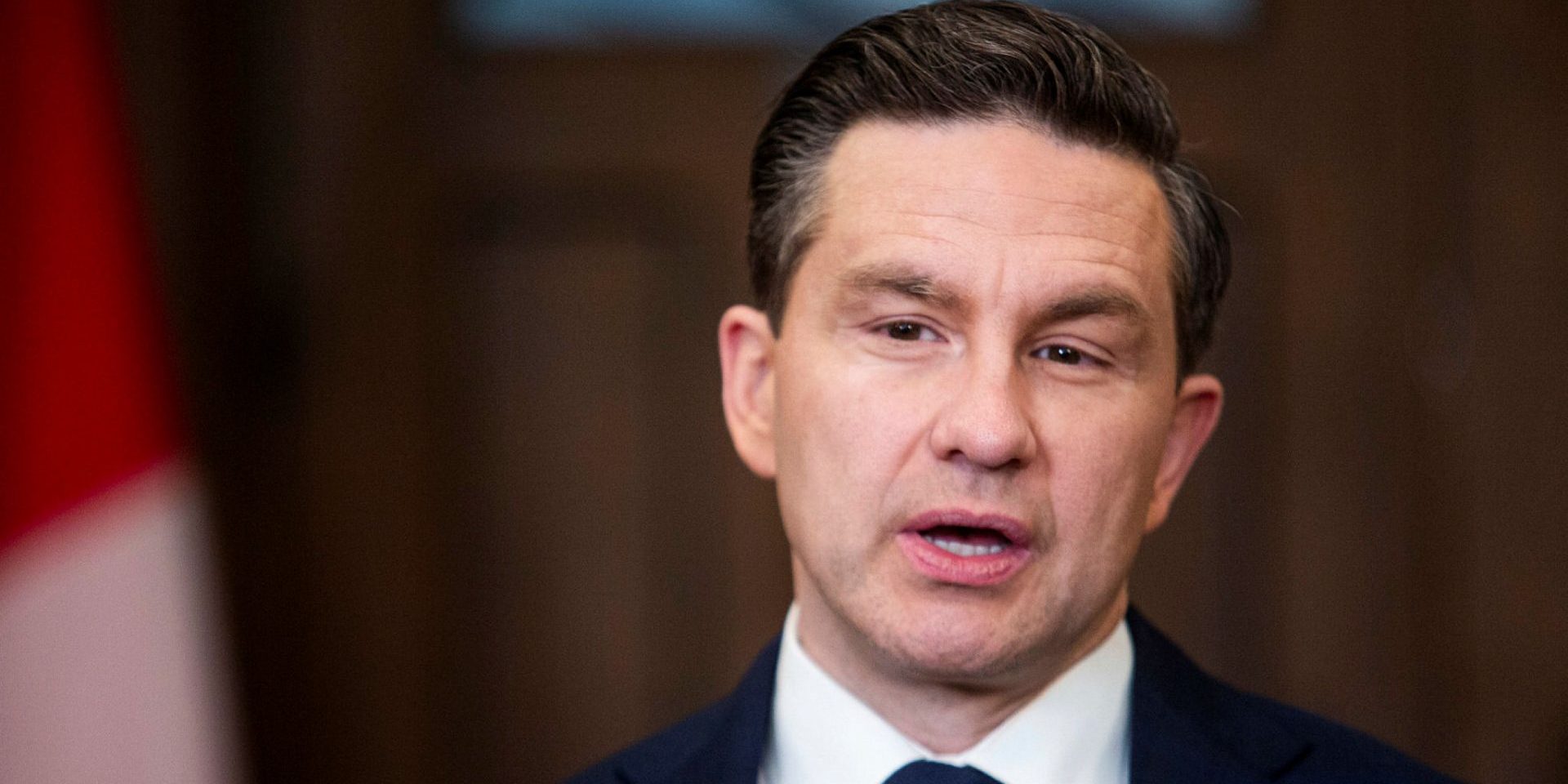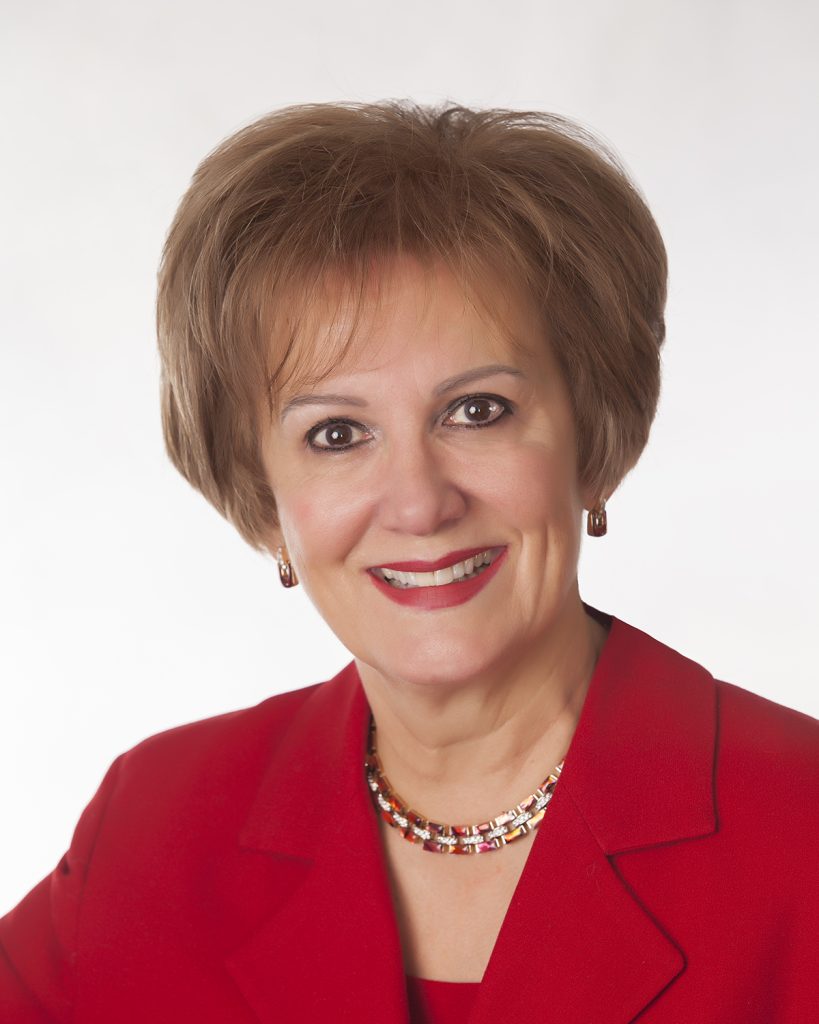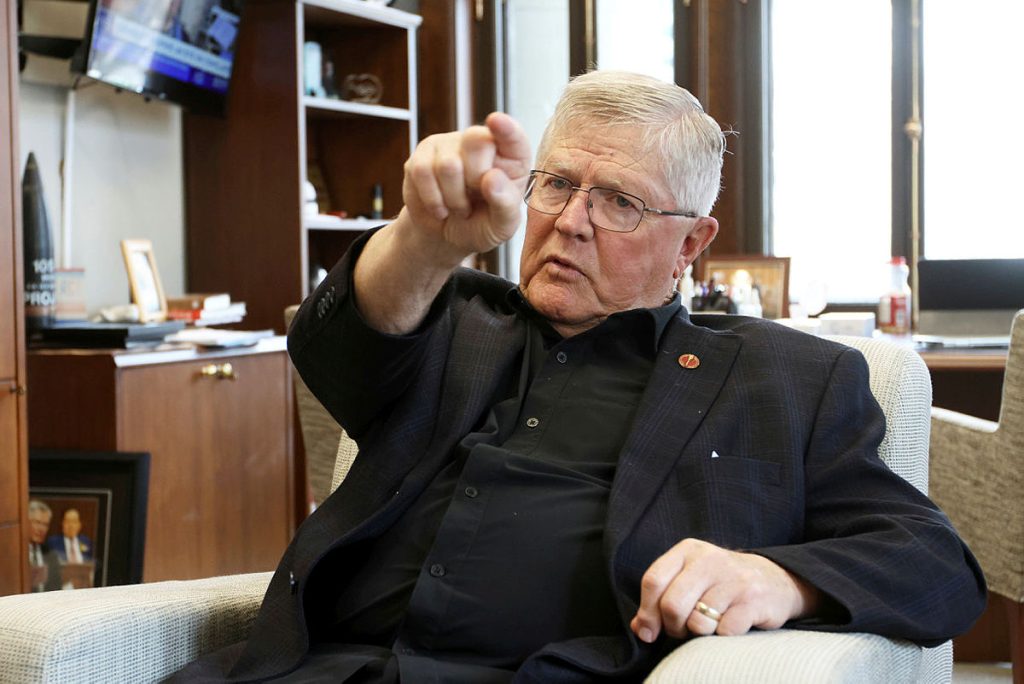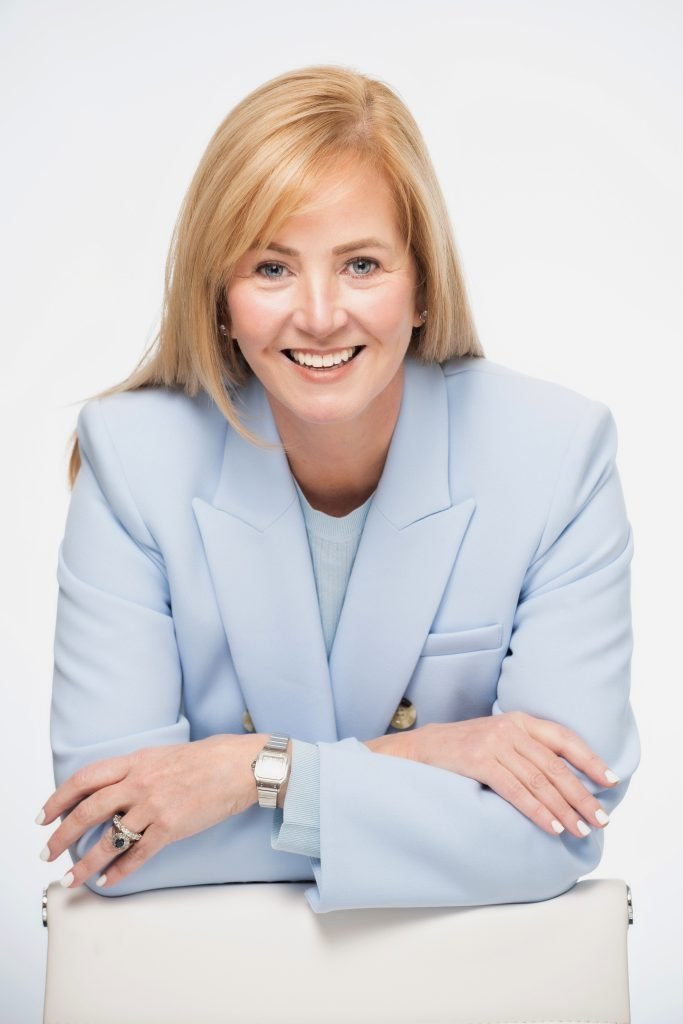Frustrated with party’s nominations process, former Alberta Conservative national councillor mulls comeback: ‘the worst I saw was in Calgary Skyview’

A former and prominent three-term Alberta national councillor is considering coming out of retirement to run for the Conservative Party’s highest elected governing body at the party’s January biennial policy convention in Calgary.
Marilyn Elliott, who served on the national council from 2013 to 2021, told The Hill Times that a key motivation for her return would be to address widespread concerns amongst grassroots members over the candidate nomination process—particularly in Alberta, Ontario, and British Columbia—where numerous potential candidates say the party did not hold fair contests.
Elliott said that she would only enter the race for the national council if former Senate Conservative leader and party president Don Plett also decides to run. While she never served alongside Plett on the council, her husband Gord Elliott did from 2006 to 2013. At the time, spouses often attended meetings and became acquainted during post-meeting social events. The national council holds in-person quarterly meetings to discuss party governance issues and to receive briefings from the senior party officials on important issues and election readiness. Elliott said that she remembers Plett from those days as a “no-nonsense person” who would follow the rules.
“He [Plett] was a previous party president, and he was a no-nonsense kind of person,” Elliott told The Hill Times. “He would never have allowed national council to—how shall I say this?—to succumb to the depths they have allowed them to fall. In other words, when Don was president, national council led the party. What’s happening now is that the party leads national council.”

In a recent interview with The Hill Times, Plett, who served as party president and national councillor from Manitoba between 2002 and 2009, did not rule out the possibility of seeking a council seat at the Jan. 29–31, 2026, convention. He also expressed serious concerns about the lack of transparency in the nomination process in the last election cycle.
After reading Plett’s interview, Elliott called The Hill Times to say that if the former party president and Manitoba Senator were to run, she would also seek a seat at the national council.
At the party’s policy convention, the grassroots party members will elect all 20 members of the national council. Conservative Party Leader Pierre Poilievre will also face a leadership review as required by the party constitution following an election loss.
Elliott said that the nomination process is top of mind for many party members. She said she heard numerous complaints in the last election cycle about unfair or opaque nomination decisions. Citing one example, she pointed to the riding of Calgary Skyview, Alta., where the Conservative candidate Amanpreet Gill had previously donated to the Liberal Party and attended a fundraiser with then-prime minister Justin Trudeau, but still secured the nomination without a contest. A number of other potential candidates campaigned for months in the hopes of a contested nomination race, but in the end learned that the party had appointed a candidate in the riding. Elliott said that if she decides to run for the national council and if she were elected, she would ensure the party holds a transparent nomination process.
“It was the nomination process that they [potential candidates] had been working, door-knocking, signing up new members for a year, [or] 18 months, and then in the 11th hour, the rug was pulled out from under them, and the party just plunked someone in. The worst that I saw was Calgary Skyview,” said Elliott.
“Let’s put it this way: I’d scream bloody murder” if a fair nomination race didn’t occur under her watch, said Elliott.
She criticized the current state of the national council, suggesting it has reduced itself to a “housekeeping” role when it should be taking the lead.
“Basically, what national council has allowed them to become is just the body of housekeeping,” Elliott said. “Let’s make the rules for this and the rules for that, and let’s go through this, but they have allowed themselves to be bullied is really what has happened.”
Elliott said that if the national council does not want to hold senior party officials to account when they don’t follow the rules, then they might as well decide that they are not needed anymore.
“If national council allows itself to be led instead of lead, I recommend that they put forward a constitutional amendment to disband national council—get rid of it, it’s not needed,” said Elliott. “Let the party run everything because that’s essentially what’s happening now.”
As of press time, Stephen Barber, the Conservative Party president, was not available for a comment for this article.
In every election cycle, both the Conservative and Liberal parties face criticism from potential nomination candidates. However, the party seen as more likely to form government typically faces greater scrutiny, as more potential candidates want to run for the winning side. In the last election cycle, Poilievre’s Conservatives led in the national public opinion polls for about 18 months by a high double-digit margin, and attracted more interest from potential candidates than the Liberals who were struggling to hold even second place and were expected to end up in third or fourth place following the election. The chief reason for the Trudeau Liberals’ drop in the polls was the fatigue with the then-prime minister who had been in power for nine years. Other reasons included public frustrations with the cost of living and sky-high housing prices.
But the political landscape changed dramatically after Trudeau announced his exit plans back in January. Until that time, the Conservative lead was as high as 27 points, and the party was projected to win more than 200 of the 343 seats up for grabs.

Buoyed by high approval ratings, Poilievre spent close to two years asking for an election. Referring to Jagmeet Singh as “Sell-out Singh,” the Conservative leader mocked the then-NDP leader for months for supporting the Liberals. Poilievre challenged Singh to withdraw the NDP’s support for the minority Liberals—which came as a result of a supply-and-confidence agreement between the two parties—during confidence votes.
Once the election was called, the Conservative Party appointed 90 candidates, according to some estimates. Potential candidates blame senior campaign officials for deliberately delaying the nominations of candidates so that those officials could appoint candidates of their choice.
The Conservative Party’s nomination rules allow the executive director to “alter, abridge or suspend any section or sections of the rules as they see fit” when the election is called. However, the executive director is required to consult with the party president and chair of the national candidate selection committee.
“Any such decision shall be final and binding and is not subject to appeal challenge or review on any grounds whatsoever,” say the party’s nomination rules.
In the April 28 election, the Conservatives lost and the Liberals won a fourth straight mandate with a strong minority government of 169 seats, only three short of a majority. Because of this electoral loss, top party officials have been under fire for the way candidate nominations were handled. Since the start of the election campaign, disallowed potential nomination hopefuls have participated in media interviews alleging favouritism, and claiming senior officials either blocked them from entering the contests or denied them access to application portals.
The candidate nomination process controversy has led to frustration, with some former potential candidates even revoking their memberships and joining the Liberal Party in protest. Under Poilievre, the Conservative Party raised record-breaking amounts of money, outraising the combined totals of the Liberals, NDP, and Bloc Québécois, while candidates signed up thousands of new members at $15 each.
Disallowed nomination candidates and their supporters say they contacted national councillors and Poilievre with their concerns, but no one helped them. A number of them started speaking out publicly in the lead-up to the start of the campaign, convinced that internal party politics—not merit—kept them from carrying their party’s banner in the election.
To address these concerns, the party’s national council at its June 14 quarterly meeting in Ottawa established an internal ad hoc sub-committee to review the nomination rules.

Yvonne Robertson, who spent over a year in the last election cycle campaigning for the Conservative nomination in the Ontario riding of Don Valley West, said she had raised more than $600,000 over the past eight years. To prepare for her nomination election, she said she recruited 1,000 members and campaigned extensively, only to learn close to the election call that the party had appointed a candidate.
Robertson said that all she wants is for the party to follow its own nomination rules—and if party officials have a preferred candidate in mind, potential contenders should be informed upfront so they don’t spend months in campaigning. Robertson also said that the Conservative Party should refund the $15-membership fee to all those who believed they were signing up to vote in a nomination process. She said that this should happen in all ridings where appointments have been made without a contested nomination.
“Do not ask people to spend money [on] a $15-membership under the guise of a vote,” said Robertson. “If there’s a chance, even on the balance of probabilities—as they say in our civil justice system and the criminal system—if there’s even the slightest doubt that you will not hold a nomination system based on a paid membership, you either give everyone their membership money back who paid in 2025 or 2024 … or don’t take their money in the first place.”
arana@hilltimes.com
The Hill Times






 LICENSING
LICENSING PODCAST
PODCAST ALERTS
ALERTS













